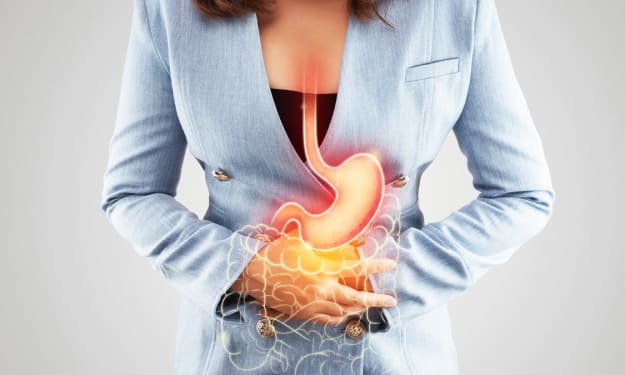How to Lower Blood Pressure Naturally
Hypertension, often known as high blood pressure, affects one-third of all individuals in the United States, with less than half having it under control.

Hypertension, often known as high blood pressure, affects one-third of all individuals in the United States, with less than half having it under control.
High blood pressure can lead to major health problems without any warning signals.
The good news is that lifestyle adjustments can naturally lower your blood pressure.
1. Regular Physical Activity Promotes Health
It's no secret that regular physical activity helps you stay healthy. Exercise not only helps control high blood pressure but also helps you lose weight, strengthen your heart, and reduce stress.
While any sort of aerobic activity (walking, jogging, dancing) is beneficial to heart health, try to choose one you enjoy. This will make it easier to stick to a regular pattern and encourage you to get up and move.
2. Eat Less Salt
Most individuals consume too much salt without realizing it. The American Heart Association estimates that the average American consumes approximately 3,400 mg of sodium per day. However, the recommended daily consumption is 2,300 mg, with a maximum of fewer than 1,500 mg per day, particularly for people with high blood pressure.
To reduce sodium in your diet, consider the following tips:
- Read the food labels. Look for "low salt" or "low sodium" versions of the foods and beverages you frequently purchase;
- Consume fewer processed foods. Only trace amounts of salt are naturally present in foods;
- Nearly 70% of the sodium we consume comes from processed, prepared, and restaurant foods.
- Do not add salt. Just one teaspoon of salt has 2,300 milligrams of sodium. Spices, garlic, herbs, and other seasonings can replace some or all of the salt in your favorite foods to enhance their flavor.
3. Increase Potassium in Your Diet to Lower High Blood Pressure
Potassium cannot only help regulate heart rate but also counteract the effects of sodium in the body.
The most efficient strategy to improve your potassium consumption is to change your diet rather than use supplements. Potassium-rich foods are:
- Fruits include bananas, melons, oranges, apricots, avocados, and tomatoes;
- Milk, yogurt, and cream cheese;
- Leafy greens, potatoes, and sweet potatoes;
- Tuna;
- Salmon;
- Beans;
- Nuts;
- Seeds.
While including these items in your diet can enhance your heart health, you should consult with your doctor about the appropriate potassium level for you. Furthermore, if you have severe kidney illness, you should avoid taking excessive potassium because your kidneys may be unable to eliminate it.
4. Limit Your Alcohol Consumption
Some evidence suggests that drinking alcohol in moderation can be beneficial to your heart. However, consuming too much alcohol at once might result in an abrupt jump in blood pressure.
If you do drink, the American Heart Association suggests that men restrict their alcohol consumption to two drinks per day and women to one drink per day. A drink equals one 12-ounce beer, four ounces of wine, 1.5 ounces of 80-proof spirits, or one ounce of 100-proof spirits.
5. Reduce Stress to Lower Blood Pressure
We all experience stress in our daily lives—a flat tire in the middle of rush hour, a looming deadline at work—which can trigger a momentary increase in blood pressure. In most circumstances, once the stressful scenario has passed, your heart rate and blood pressure will return to normal.
While it is hard to eliminate all stressors from your life, learning to deal with them in a healthier way will improve your health and wellness, lowering your blood pressure.
Some ways to reduce or deal with stress include:
- Reframing your mindset. Instead of fretting about problems beyond your control, focus on what you can manage;
- Many of our fears arise from "what if" scenarios that may never occur. Putting those ideas in perspective and remembering to be present can assist in alleviating your worries;
- Avoid stressors. Try not to put yourself in unnecessarily stressful circumstances. For example, leave for work a few minutes early to avoid rush-hour traffic;
- Practice thankfulness. Recognizing all the positive aspects of our lives can assist in redirecting our emphasis away from what we want or lack. Outwardly expressing gratitude to people might also help reduce stress levels;
- Take some time to unwind and enjoy. Set aside time for things that offer you delight. Whether it's eating a wonderful meal, spending time with loved ones, or listening to an interesting podcast on your phone, make time to incorporate small moments of joy throughout the day.
About the Creator
Amelia Grant
I am journalist, and blogger.
Enjoyed the story? Support the Creator.
Subscribe for free to receive all their stories in your feed. You could also pledge your support or give them a one-off tip, letting them know you appreciate their work.






Comments
There are no comments for this story
Be the first to respond and start the conversation.